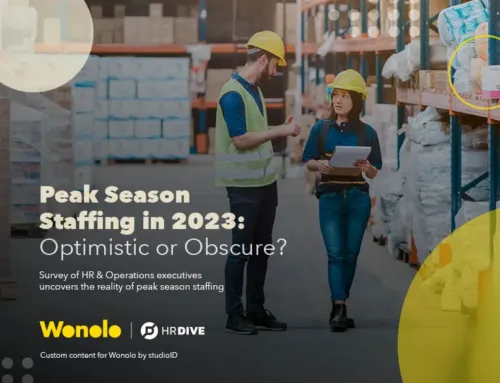Wonolo
 People love to use the word disruption – especially Silicon Valley. Today, the most common analogy is usually around how Uber & Lyft disrupted the taxi industry. And why not? Uber is a $40+ Billion dollar company – 4x the annual revenue of the entire US taxi industry already – and a far more pleasant experience as well. And AirBnB already has more rooms available than any other hotel chain and is valued higher than most. But disruption has been going on long before 2008 and has always been one of the biggest threats to incumbents.
People love to use the word disruption – especially Silicon Valley. Today, the most common analogy is usually around how Uber & Lyft disrupted the taxi industry. And why not? Uber is a $40+ Billion dollar company – 4x the annual revenue of the entire US taxi industry already – and a far more pleasant experience as well. And AirBnB already has more rooms available than any other hotel chain and is valued higher than most. But disruption has been going on long before 2008 and has always been one of the biggest threats to incumbents.
Ford disrupted the horse and buggy industry with their mass-production assembly lines. Southwest shook up the airlines with good service, simple fleet, and direct flights. Wikipedia killed the encyclopedia market with a crowdsourced free and up to date website. And on and on. One visionary company finds a better way to do things and despite heavy pushback from the incumbents, the users see the benefits and moves on, leaving the incumbents confused wondering what went wrong. The thing is, these industries aren’t so much being disrupted (defined as: disturbance or problems that interrupt an event, activity, or process) but rather the business model is being reimagined. The end result is still the same – what has changed is this new company reimagined a better means for users to reach that end.
Tons of research has gone into understanding what leads to an industry ready to be reimagined, but the short of it is this: “Incumbents choose to ignore the new players or to flee to higher-margin activities.” These new players with new business models aren’t always cheaper, but often are. But the product is almost always leveraging technology in a new way that the incumbents don’t see coming or can’t move fast enough to do anything about. Every example above is the same. And most others as well: how many of us watched something from Netflix recently vs from Blockbuster? They just reimagined the boring part of watching a movie – how it gets to your TV screen. That was the unnecessary friction of enjoying a flick at home. Same as hailing a cab or flying through a hub city – unnecessary friction.
When you think of big industries that haven’t fully grasped technology and aren’t known for their customer experience, what comes to mind? Banking? Education? Health Insurance? Temp Staffing? Many of us deal with these industries frequently and either subconsciously or sometimes out loud say to ourselves, this could be so much better. Why does it have to be this way? When is someone going to do something about this? We imagine it can be better (less friction) and then we wait for someone to act on that wish.
The good news is there are tons of companies imagining a better way in FinTech. In EdTech. In HealthTech. But in staffing, have you ever heard of StaffTech? We haven’t. Actually – it isn’t a tech vertical, rather it’s another staffing company called Staff Tech… The US staffing industry is over $100 Billion in revenues yet the innovation in this space is still very nascent. Isn’t it about time we reimagined staffing and started removing the friction?
Elance has reimagined how we tap into a global workforce of freelancers. Mechanical Turk has reimagined how repetitive data based tasks can be farmed out and completed. And Wonolo has reimagined how local jobs with a high level of unpredictability can be staffed almost instantly. These businesses are changing the way things get done, but things are still getting done. The end doesn’t change – just the means. And the similarity between these three platforms is that they all remove the friction – the middle man – to provide a cheaper, better, faster solution to getting work done. They are all reimagining the staffing industry.
Next time you have a need for a person to help you get your job done better or faster or cheaper, perhaps you’ll consider trying one of the companies who are reimagining the way work gets done. And while these new StaffTech companies begin to eat away at the staffing industry, we bet you’ll be wondering why no one imagined it could be this easy before.


![[Report] Beyond the Gig: Exploring Reliable Work Options for the Modern Workforce](https://info.wonolo.com/wp-content/uploads/2023/10/Worker-Preferences-Report-Header-Image-500x383.png)



